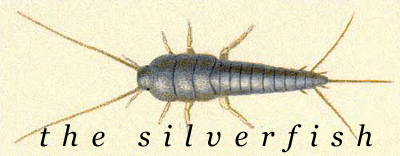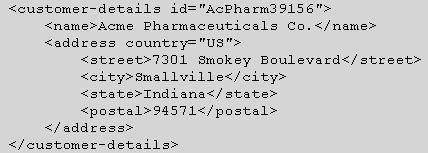|

December 2002 Contents:
Indexing
and the Quality of Life
iSchool evening program becomes "self-sustaining"
Special Reference Book Review Section
KCLS Student Librarian Internship Program
Virtual Reference: Replacement or Enhancement?
Books for Viewing
The Lowdown on the ASIS&T 2002 Annual Meeting
Indexing
and the Quality of Life
 This
month I would like to discuss indexing. I know, it sounds a lot more
LIS 536 than LIS 550, but indexing is an important factor in the way
that people interact with information and it is playing an important
role in the Information Age. This
month I would like to discuss indexing. I know, it sounds a lot more
LIS 536 than LIS 550, but indexing is an important factor in the way
that people interact with information and it is playing an important
role in the Information Age.
In preparing
this article, I starting thinking about the different ways I interact
with indexes. One of the most obvious ways is when I am considering
buying a non-fiction book. A quick check of a few key terms helps
me determine if the book will be useful. Another index that I rely
on is the one built into Microsoft Access. Not being a regular Access
user, it's hard for me to remember specific commands. I find that
the built-in index is usually a lot more helpful than the little
paperclip guy.
Being a second
year student, I am starting to think about the portfolio requirement.
I don't know about you, but I find site maps to be extremely useful.
Lately I've been wishing that the Information School site had one
so you could find the portfolio requirements more easily. (Potential
Portfolio Opportunity? I smell a "design and development"
experience here…) These are a few of the many familiar forms
that indexes take.
One of the common
responses indexers get when they explain what they do is, "People
do that?!?" Now that Google pretty much rules the world, it's
easy to believe that computers would pick out the important stuff
and put it in order. But what about context? What about meaning? It
takes the human mind to sort out the subtleties of a text. A computer
is unable to differentiate between main concepts and passing mentions
of keywords. To a computer, all words are equal. Well, sorta.

Lately, one of
the hot topics in the field of information science has been that of
the Semantic Web, Tim Berners-Lee's idea about a way for the Web to
be intelligent and intuitive about users' behavior. Two related indexing
technologies, eXtensible
Markup Language (XML) and Resource
Description Framework (RDF) are ways that the web is moving in
this direction. XML and RDF are ways to provide additional information
about data. This information may be used to create meaning beyond
the text represented on your screen. Check out Berners-Lee's article
in Scientific American for more information about the Semantic Web.
I am looking
forward to taking LIS 536 next quarter to learn more about indexing
theory and practice. Indexes are - among many things - a bridge between
data and knowledge and I think indexing is a valuable skill to have
these days as information professionals are creating new technologies
that affect the quality of life.
Beth Lahickey
Silverfish Society Editor
iSchool
evening program becomes "self-sustaining"
By Michael Harkovitch
Uncertainty and
frustration followed an official announcement earlier this quarter
that the iSchool's MLIS Evening Degree Program will now have to be
self-sustaining as part of a $20 million university-wide reduction
in funds... FULL STORY
Special
Reference Book Review Section
By Katy Shaw
This quarter,
students in Matt Saxton's section of LIS 520 (also known as Information
Services, Resources and Collections) wrote reviews of new reference
books... FULL STORY
KCLS
Student Librarian Internship Program
By Michael Harkovitch
Hot on the heels
of Seattle Public Library's suspension of its student librarian program
due to budget cuts, King County Library System held an information
session at the iSchool on November 7 to promote its "evolving"
student librarian internship program... FULL
STORY
Virtual
Reference: Replacement or Enhancement?
By Jenna Irwin
Technology is
a wonderful thing. Reference is near and dear to the hearts of information
professionals. Meshing the two of them would seem to be a dream come
true... FULL
STORY
Books
for Viewing
By Joan Hutchinson
If there's one
thing I enjoy more than watching movies, it's reading about them.
So, it's not surprising that a simple collection development project
I recently finished for Kitsap
Regional Library took me days of research rather than hours... FULL
STORY
The
Lowdown on the ASIS&T 2002 Annual Meeting
By Aaron Louie
Ah, Philadelphia.
The city of Brotherly Love. The birthplace of the United States. What
better location for the 2002 annual meeting of the American Society
for Information Science and Technology (ASIS&T), an organization that
values community, free speech, and information science research? FULL
STORY
Submissions
Requested
Are you interested
in sharing your knowledge with the rest of the student body? Have
you attended any conferences or taken an interesting or worthwhile
class outside of the department? Would you care to review nearby bars
for us? Send your Silverfish submissions to aliss@u.washington.edu.
Silverfish
content is protected by copyright law, and may not be reproduced, distributed,
transmitted, displayed, or otherwise utilized without the prior written
consent of the author. Copyright is retained by the author. All rights
reserved.
Edited
by Michael Harkovitch
Silverfish
Web Design by John W.N. Buell
|



 This
month I would like to discuss indexing. I know, it sounds a lot more
LIS 536 than LIS 550, but indexing is an important factor in the way
that people interact with information and it is playing an important
role in the Information Age.
This
month I would like to discuss indexing. I know, it sounds a lot more
LIS 536 than LIS 550, but indexing is an important factor in the way
that people interact with information and it is playing an important
role in the Information Age. 